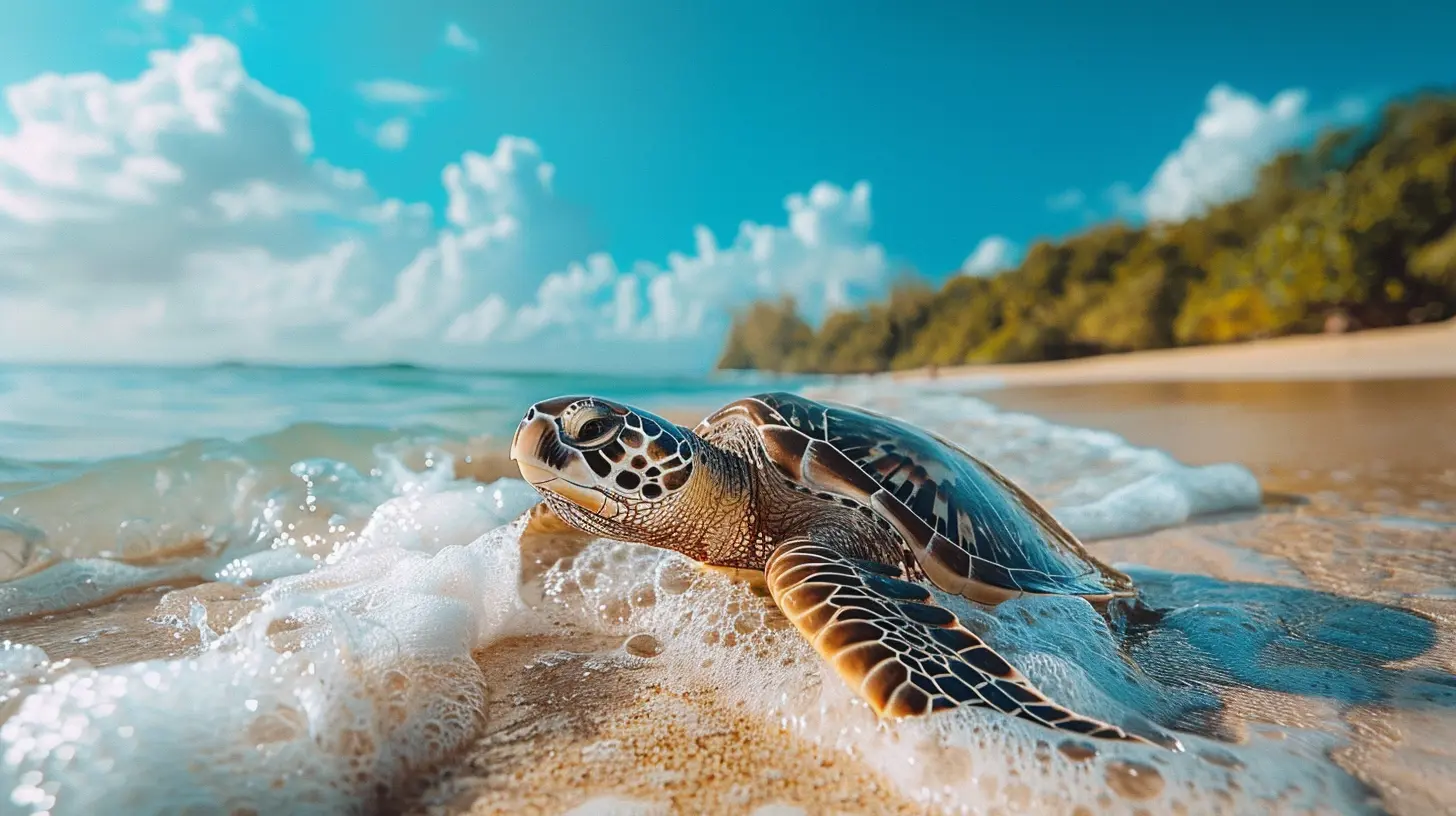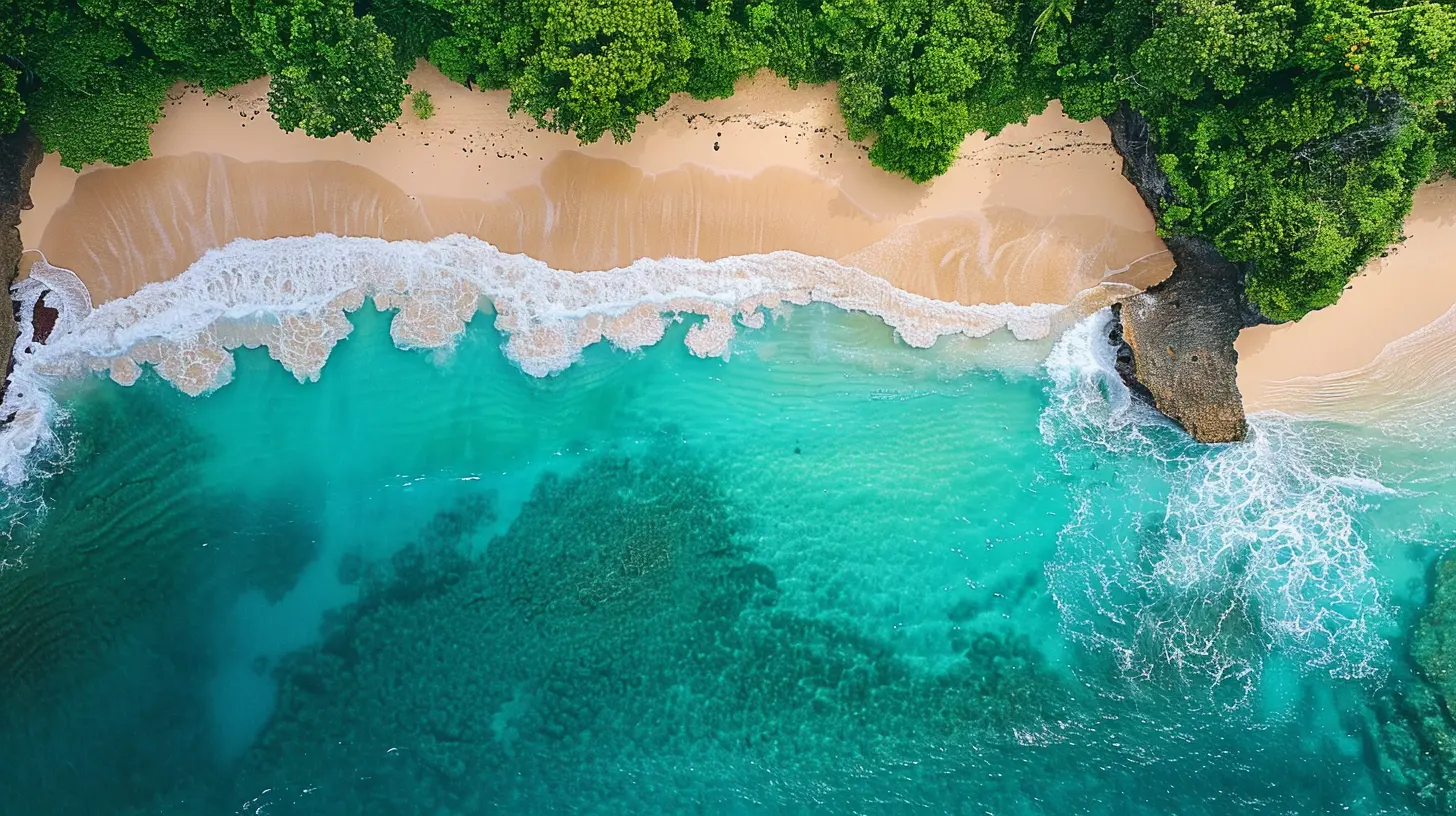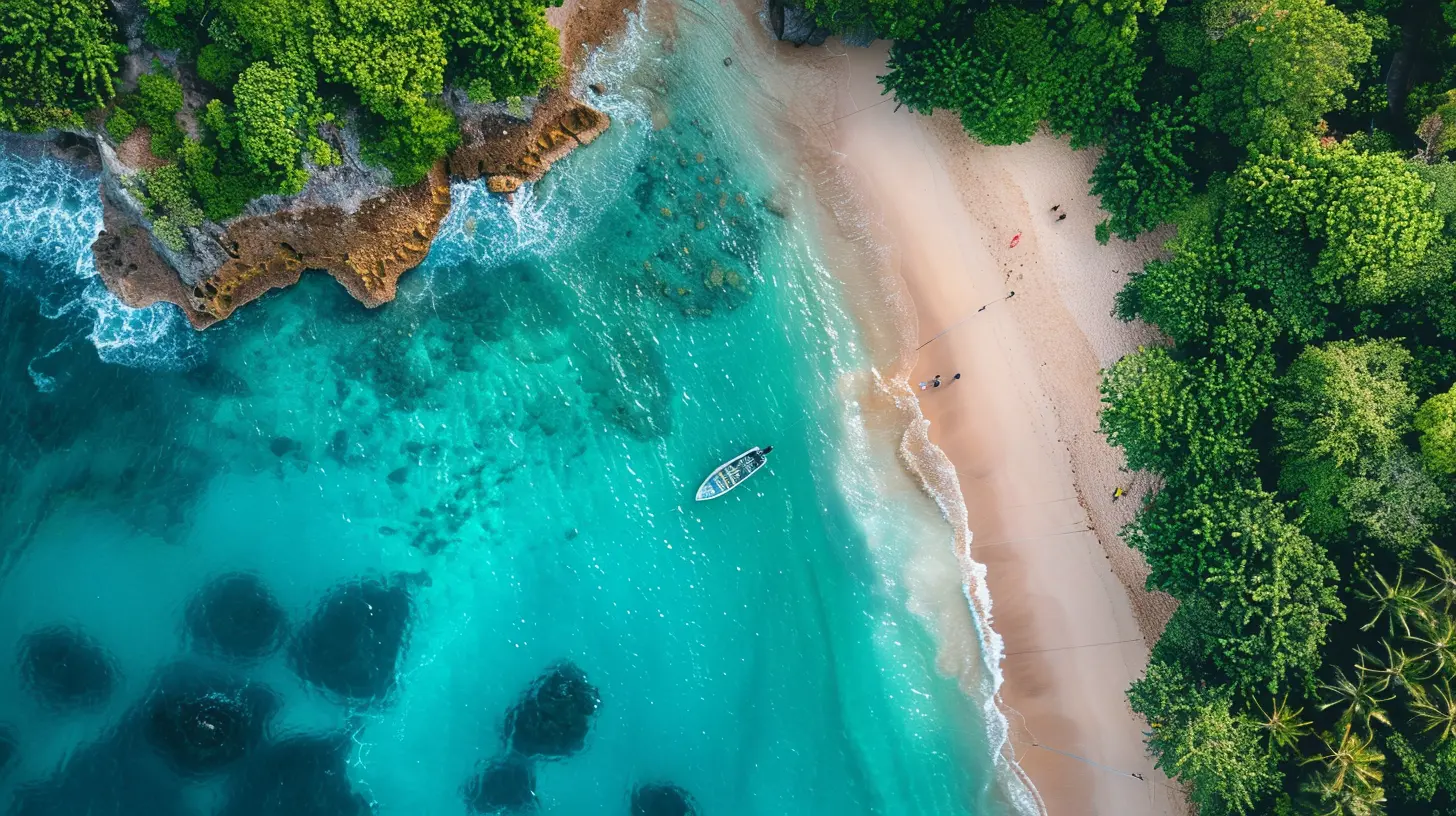Protecting the Oceans: How to Travel Eco-Consciously to Beach Destinations
29 July 2025
The ocean is one of the most breathtaking natural wonders on our planet. It covers more than 70% of the Earth's surface, supports countless marine species, and plays a crucial role in regulating our climate. But here's the harsh truth—our oceans are in trouble. Climate change, plastic pollution, and irresponsible tourism are pushing marine ecosystems to the brink.
As travelers, we have a responsibility to protect our oceans and ensure that future generations can enjoy their beauty. So, how can you visit beach destinations while minimizing your environmental impact? Let’s dive into the best ways to travel eco-consciously and keep our oceans safe.

Why Protecting the Oceans Matters
Our oceans aren’t just a pretty backdrop for Instagram-worthy vacations—they are the lifeline of our planet. Here’s why protecting them should be a top priority:- Oceans produce over 50% of the oxygen we breathe. Without them, life as we know it wouldn't exist.
- They regulate global temperatures. Oceans absorb heat and help keep our climate stable.
- Marine life depends on clean waters. Pollution and overfishing destroy fragile ecosystems, putting countless species at risk.
- Coastal communities rely on healthy oceans. Millions of people depend on marine resources for food, jobs, and tourism.
Now that we understand why ocean conservation is crucial, let's talk about how you can reduce your impact while traveling.
How to Travel Eco-Consciously to Beach Destinations

1. Choose Sustainable Accommodations
Where you stay can have a big impact on ocean health. Many hotels and resorts contribute to pollution through waste, excessive energy consumption, and irresponsible development. But don’t worry—eco-friendly options are on the rise!What to Look for in a Sustainable Stay:
- Eco-Certifications – Look for certifications like Green Key, LEED, or EarthCheck, which indicate sustainability efforts.- Energy Efficiency – Choose hotels that use solar power, energy-efficient appliances, and LED lighting.
- Water Conservation – Resorts that use water-saving systems and encourage towel reuse help reduce water wastage.
- Plastic-Free Initiatives – Avoid places that rely on single-use plastics and opt for those providing reusable alternatives.
Bonus tip: Consider staying at an eco-lodge, hostel, or Airbnb that prioritizes sustainability over luxury.
2. Travel Light and Pack Responsibly
What you bring on your trip plays a role in the amount of waste you generate. Overpacking means more fuel consumption for transportation, and single-use plastics can end up in the ocean.Ocean-Friendly Packing Tips:
- Ditch the Plastic – Bring a reusable water bottle, shopping bag, and travel utensils.- Use Reef-Safe Sunscreen – Traditional sunscreens contain chemicals like oxybenzone and octinoxate, which are harmful to coral reefs. Look for mineral-based options instead.
- Pack Light – The heavier the luggage, the more fuel is needed for transport. Stick to essentials.
- Carry a Reusable Straw and Cup – Small changes add up, especially when reducing single-use plastic waste.
3. Support Eco-Friendly Tour Operators
Many beach destinations rely on tourism, but not all tour companies operate with sustainability in mind. Some contribute to marine degradation by offering harmful activities like dolphin encounters in captivity or destructive boat tours.How to Pick a Responsible Tour Operator:
- Check Their Policies – Do they follow ethical wildlife guidelines? Are they committed to sustainability?- Look for Small Group Tours – Large groups can disturb marine life and damage fragile ecosystems.
- Avoid Wildlife Exploitation – Don’t support places that allow direct interaction with wild marine animals.
Choosing the right operator ensures that your adventures contribute positively to local communities and ecosystems.
4. Reduce Plastic Waste While Traveling
Plastic pollution is one of the biggest threats to our oceans. Every year, millions of tons of plastic end up in the water, harming marine life and disrupting ecosystems. The sad part? Most of this waste comes from human activities—including tourism.Simple Ways to Cut Down Plastic Waste:
- Say No to Straws and Plastic Utensils – Use reusable alternatives.- Bring Your Own Toiletries – Avoid using the single-use bottles provided by hotels.
- Avoid Buying Bottled Water – Opt for refillable bottles and use water purification tablets if necessary.
- Support Businesses That Are Plastic-Free – Choose restaurants and shops that follow sustainable packaging practices.
5. Respect Marine Life and Coral Reefs
Snorkeling, scuba diving, and boating offer breathtaking ocean experiences—but they can also harm marine ecosystems if done irresponsibly. Coral reefs, in particular, are fragile and can be destroyed by human contact.Do’s and Don’ts While Enjoying Marine Life:
- Don’t Touch or Step on Coral – Corals are living organisms, and even a slight touch can cause damage.- Keep a Safe Distance from Marine Animals – Avoid chasing, touching, or feeding wildlife.
- Use Responsible Dive Operators – Choose dive shops that promote eco-friendly diving practices.
- Anchor Responsibly – If you’re boating, use designated anchoring points to prevent damage to coral reefs.
Respecting marine life ensures these beautiful ecosystems remain intact for generations to come.
6. Participate in Beach Cleanups
Want to leave a positive impact on your destination? Join a local beach cleanup! Many organizations and resorts host regular cleanups where visitors can help remove trash from shorelines.How to Get Involved:
- Join Organized Cleanups – Check with local conservation groups for scheduled events.- Pick Up Litter While You Walk – Even if there’s no official event, you can still collect trash during your beach strolls.
- Encourage Others to Help – Inspire fellow travelers or locals to join in the effort.
A little effort goes a long way in keeping beaches clean and oceans free from waste.
7. Eat Sustainable Seafood
Seafood is a staple in many beach destinations, but overfishing and unsustainable practices are putting marine species at risk. Choosing responsibly sourced seafood helps protect ocean biodiversity.How to Make Sustainable Food Choices:
- Check Seafood Guides – Use apps like the Seafood Watch by Monterey Bay Aquarium to find sustainable options.- Ask Where Your Seafood Comes From – Restaurants that prioritize sustainability will be transparent about sourcing.
- Avoid Overfished Species – Say no to endangered options like bluefin tuna and certain shrimp varieties.
Supporting sustainable seafood ensures that marine life can thrive for future generations.
8. Offset Your Carbon Footprint
Air travel and transportation contribute heavily to carbon emissions, which accelerate climate change and harm ocean ecosystems. While avoiding air travel isn’t always possible, you can take steps to minimize your carbon footprint.Ways to Reduce Your Carbon Footprint:
- Choose Nonstop Flights – Take direct flights to reduce fuel consumption.- Use Public Transportation or Walk – Opt for eco-friendly travel methods at your destination.
- Support Carbon Offset Programs – Donate to organizations that plant trees or invest in renewable energy.
Every small step counts in reducing the environmental impact of travel. 
Final Thoughts
Protecting the oceans while traveling isn’t about making drastic sacrifices—it’s about making mindful choices. By staying in eco-friendly accommodations, reducing plastic waste, respecting marine life, and supporting responsible tourism, you can enjoy breathtaking beach destinations without harming the very ecosystems that make them special.So, next time you plan a trip to paradise, ask yourself: How can I leave a positive impact? The choices you make today will help ensure our oceans remain vibrant and full of life for years to come.
all images in this post were generated using AI tools
Category:
Eco TravelAuthor:

Kelly Hall
Discussion
rate this article
1 comments
Juniper McWain
This article provides valuable insights on eco-conscious travel. By prioritizing sustainable practices at beach destinations, we can preserve marine ecosystems while enjoying our precious coastal environments.
August 5, 2025 at 3:11 AM

Kelly Hall
Thank you for your thoughtful comment! I'm glad you found the insights valuable for promoting sustainable travel practices at beach destinations. Together, we can make a positive impact on our oceans.


